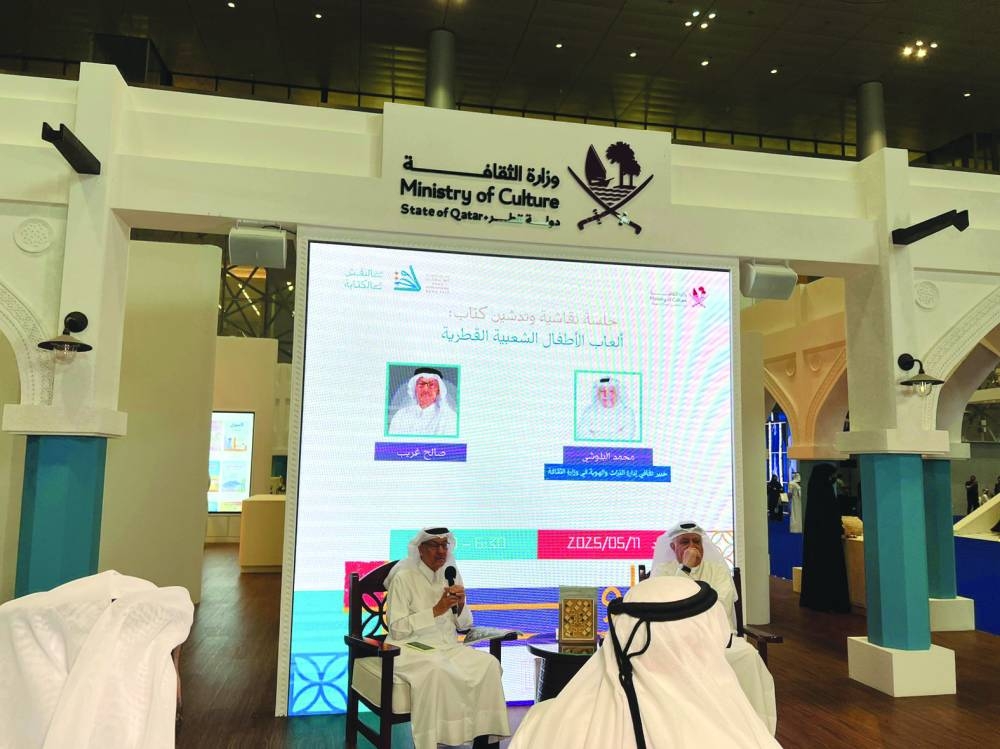The Ministry of Culture has launched a book on traditional Qatari children's games at its pavilion in the 34th Doha International Book Fair (DIBF), which is taking place at the Doha Exhibition and Convention Center and runs until May 17.
Issued by the ministry's Department of Heritage and Identity, the book was authored by researchers Abdulaziz Ahmed al-Mutawa and Abdulaziz Refaat Abdulaziz.
During a discussion session moderated by media figure Saleh Gharib, heritage expert at the Ministry of Culture Mohammad Saeed al-Balushi provided an analytical overview of the book, describing it as an important documentary and cultural work that aims to collect and classify the traditional games played by children in Qatar across generations, with the goal of preserving this cultural heritage from extinction, especially amidst the rapid social and technological transformations.
He noted that the book offers a general background on the concept of traditional games in Qatari society, their characteristics, and their role as educational, developmental, and recreational tools that contributed to developing children's skills and reinforcing social values such as cooperation, patience, fair competition, and self-reliance. He added that these games reflect the simplicity of Qatari life and the child's connection to the environment and nature.
Al-Balushi added that the book provides a detailed explanation of each game, including its name, how it is played, tools, songs, or chants associated with it, as well as the educational and skill-building objectives the games aim to achieve.
He emphasised that the book holds great value in supporting educational and pedagogical curricula by integrating these games into school activities, which would enhance national identity among children. It is also a rich reference for educators, teachers, and heritage enthusiasts, offering simplified and accessible information suitable for the target audience.
Al-Balushi stressed the importance of developing such works in the future in terms of methodology, especially if they are to become effective educational and pedagogical tools in a contemporary environment facing increasing digital and cultural challenges. (QNA)

